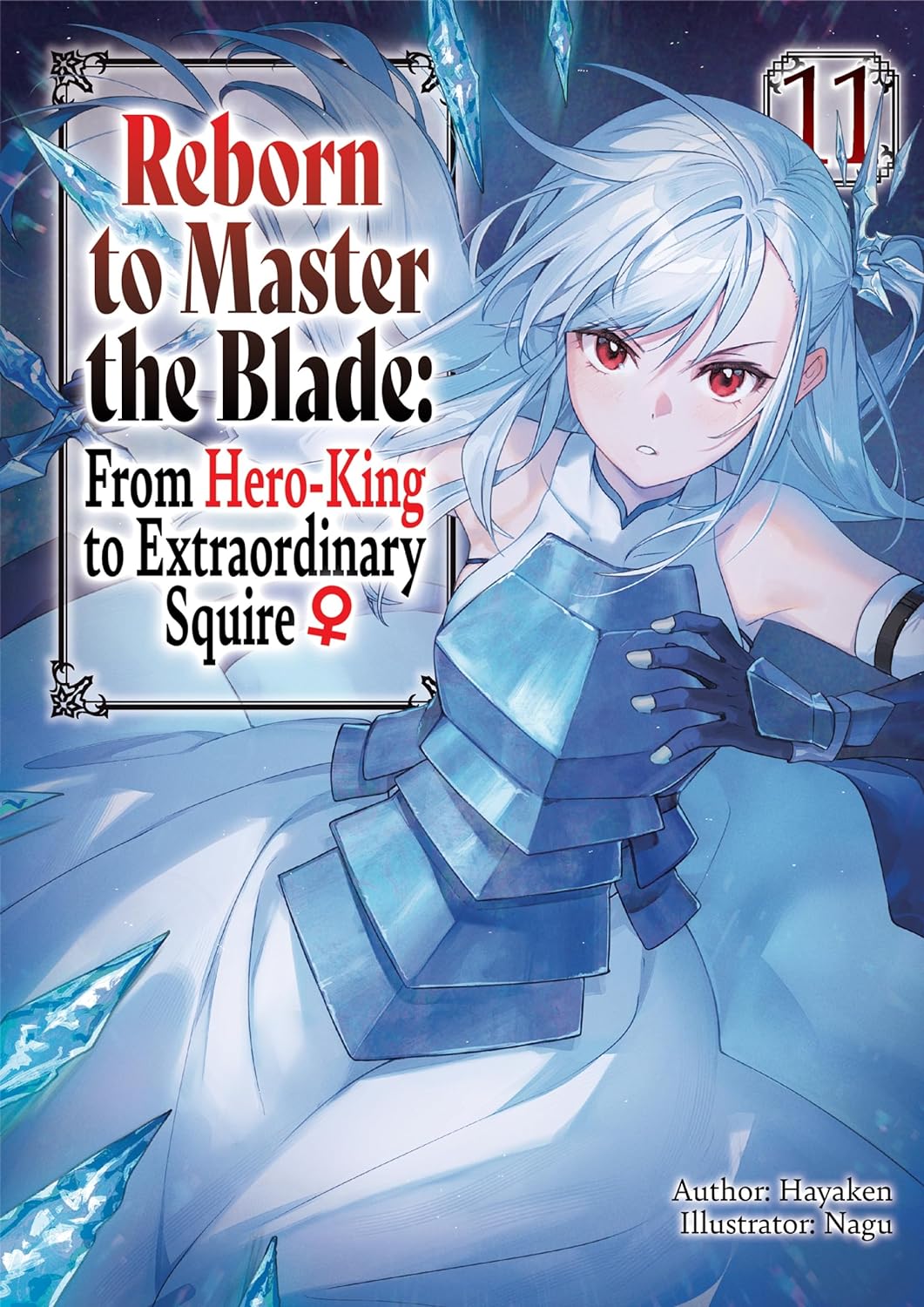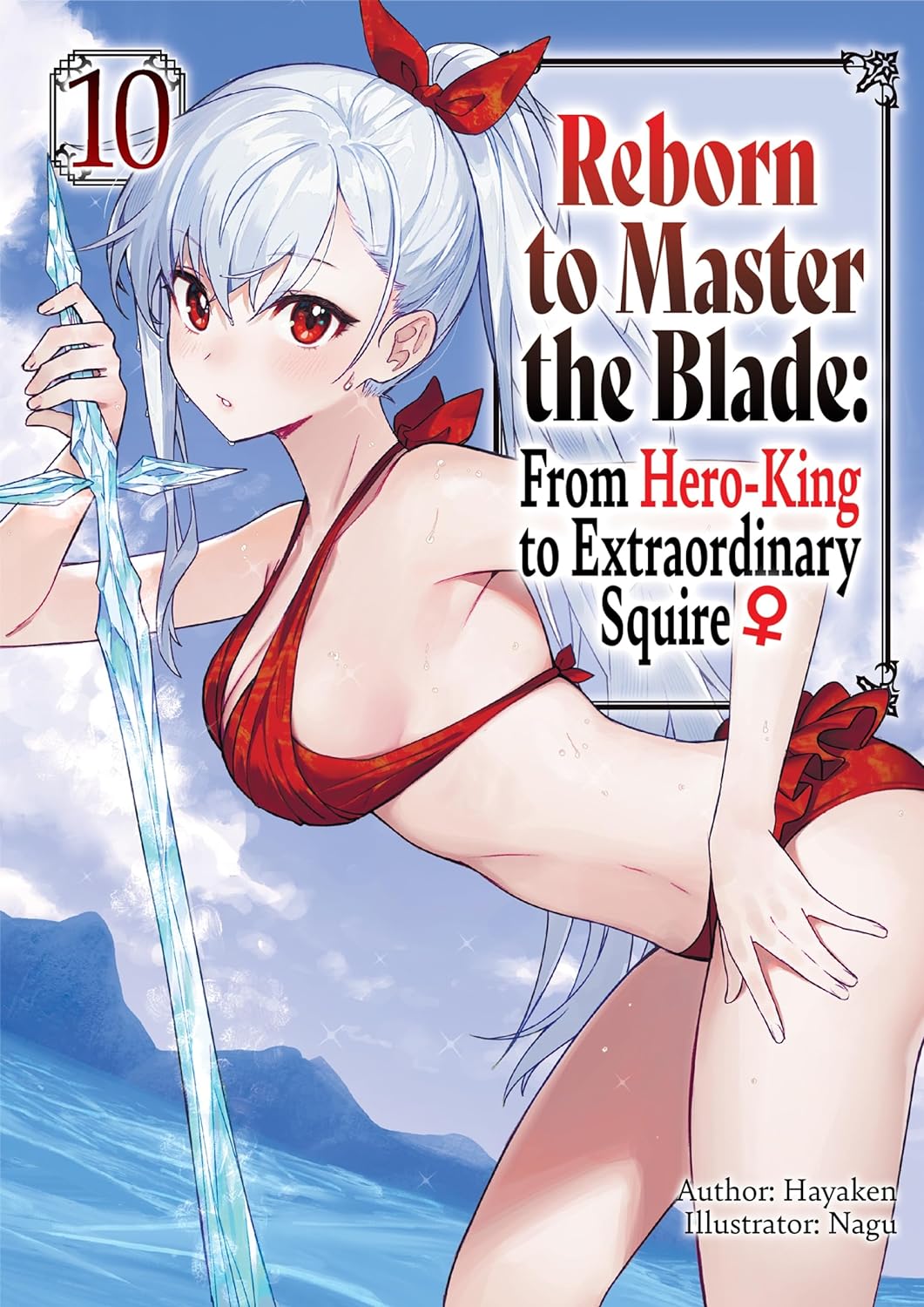By Hayaken and Nagu. Released in Japan as “Eiyu-oh, Bu wo Kiwameru tame Tensei su. Soshite, Sekai Saikyou no Minarai Kisi ♀” by HJ Bunko. Released in North America by J-Novel Club. Translated by Mike Langwiser.
The author of this book, in the afterword, talks about being happy with this book to clarify plot points and tie a lot of things together, something they don’t really like to do, as leaving things vague allows them to change their mind later. As such, I wish that I was more excited by some of the “revelations” that we get here. More than anything, they remind me of shonen manga revelations, which makes sense because, light novel or no, this series is at heart a shonen battle manga. And indeed, half the volume is a fight followed more another fight. So it’s not a big surprise that most of the revelations are of the “Luke, I am your father” type, with surprise relatives and surprise heiral menaces… well, OK, not so much a surprise, we’ve known something was up with Yua almost since we met her. That said, if all you can recall from this is Inglis punching things, you’ll be fine.
First of all, congrats to those who were sick of Inglis looking like a child, she’s back to being 16 years old again. Well, in body, at least. At the end of the last book we got the start of a bad-guy-on-good-guy pileup, and we get the continuation of that here, which culminates in Inglis accidentally hurling herself into the sarcophagus where Eris ended up… which then sinks to the bottom of the sea. Fortunately, time moves much slower in the sarcophagus. Unfortunately, the bad guys are definitely winning with Inglis gone, and are determined to find out how much more mana they can grind up if they use Highlanders rather than regular people. They really need Inglis to come back and rescue them. And she will come… ten years later. Well, OK, ten years later for her. It’s about an hour later for the rest of the cast.
OK, word of warning: This volume ends its main story about page 130, and there’s the an extended story that talks about Eris’ past before she became a hieral menace. First of all, this story has sexual assault. Secondly, this story is SO dark that I basically started reading as fast as possible to get through it. This is even worse than the “oh my god, it’s made of people!” from the previous book, and essentially serves as an object lesson for Inglis about how she’s had it really nice since she was reincarnated, what with the loving family, most of whom are alive, and the monstrous superpowers. I kind of hated that whole story, and the one big revelation in it will I’m sure come up again in the main story, so feel free to skip it entirely. Other than that, this is the same old same old, though I think readers will be happy it ends up back at the academy, with this arc now over.
So yeah, because that story finished up the book, I ended up more annoyed than happy. Inglis continuing to be an overprotective dad type to Rafinha doesn’t help. Still, it’s got some really nice fights.



